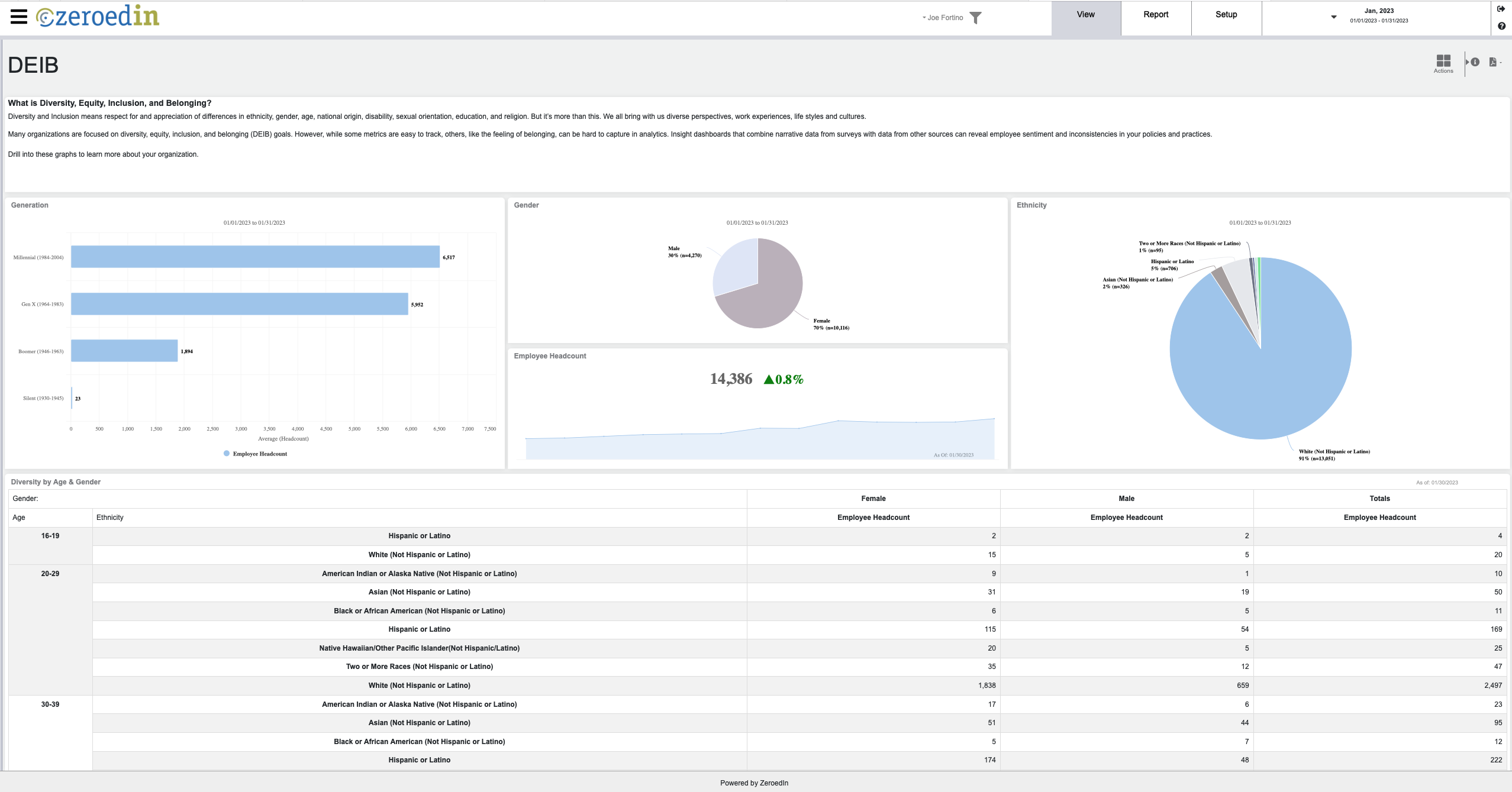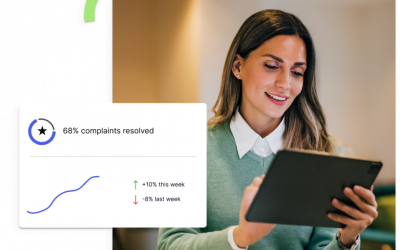Most organizations understand the benefits of creating a diverse workforce that brings different life experiences and perspectives, enhancing innovation and creativity in the workplace. However, businesses are most successful when they do more than hire employees of different races, ethnicities, ages, sexual orientations, and abilities. When an organization creates a culture of diversity, equity, inclusion, and belonging (DEIB), by accurately understanding where it is now, identifying gaps, taking action to address them, and tracking results, it will see the most benefits for its operation and its workforce.
Dave Seligsohn our SVP of operations and growth says achieving DEIB boils down to a simple equation:
Business Today (Constant) + Change (Variable) = Business Results
DEIB Benefits
Evidence of a diversity initiative can signal to applicants from all demographics that your business welcomes them and you have the potential to attract more candidates. Additionally, equity breaks down barriers to level the playing field for all applicants, ensuring all job applicants and all employees have equal access to opportunities. Most recently, diversity, equity, and inclusion in the workplace is evolving to include “belonging,” which ensures employees feel comfortable and welcome at work, regardless of any differences they have from others.
This also demonstrates an understanding of, and support for, individual needs and concerns as they arise. Knowing that the business fully supports you with whatever needs and struggles you have, as they arise, creates a safe & trusting work environment. This can include things like mental struggles, anxiety, trauma and loss.
When an organization achieves a DEIB culture, it can expect measurable benefits. For example, a study by the Achiever’s Workforce Institute reveals that when employees sense belonging they are more likely to recommend their company as a great place to work, be enthusiastic about their jobs, and feel like their most productive selves at work.
Additionally, Great Places to Work research shows that adding belonging to a DEIB program results in employees who are five times more likely to stay at their companies long-term.
Furthermore, some organizations must establish DEIB policies to stay in compliance. For example, U.S. government agencies are required by Executive Order 13985 to build diverse workforces and provide reports on their progress. Similarly, The UK’s Home Office has developed a diversity strategy for 2018 to 2025 aimed at a positive shift in workplace culture and strengthening its talent pipeline.
Investors and potential business partners may also find organizations with effective DEIB initiatives more attractive than those without one.
Managing DEIB at Your Business
A diversity, equity, inclusion, and belonging initiative that will make an impact on your business begins at the top. Your business’ leadership must prioritize these goals, ensure DEIB stays top of mind throughout the organization, write policies that comply with any federal and state regulations, and ensure their execution.
Then, like any aspect of your business, to manage DEIB, you need to be able to measure it. Some metrics are straightforward, e.g., the composition of your workforce with regard to race, ethnicity, or other demographic. However, that data may not be available in real time unless you have the right tools, like ZeroedIn. The right visualizations, such as these examples from a ZeroedIn dashboard, also quickly convey relationships and patterns you need to understand.
An insights dashboard that integrates information, for example, from your human resources information system (HRIS) with your applicant tracking system can give hiring managers and HR instant access to this information to ensure hiring complies with company policy. In addition, integrating data from a learning management system can help increase equity, making sure that employees receive additional training and mentorship when needed to expand their opportunities.
Still, inclusion, and belonging can be more challenging to measure. However, by using data from additional sources, such as compensation by demographic, promotions and potentials, and tenure and retention by demographic, you can develop a snapshot of your organization’s realities and needs. With a comprehensive set of data sources integrated with your dashboard, you can identify patterns, look for relationships, and gain new insights into how well your organization is communicating to all employees that you value them and want them to achieve.
It can also provide you with insights into the journey of your most successful employees, which can inform your decisions about how to achieve equity and help foster a greater sense of belonging. This might mean creating a diverse interview panel that minimizes bias and helps applicants feel more welcome or creating a webpage or portal that includes employee testimonials about their experiences and achievements.
An insights dashboard streamlines the process of reviewing DEIB metrics regularly. When all of the data you need is available from a single pane in near real time, you can evaluate where your company is today with your DEIB goals and any gaps that exist. An insights dashboard can also reveal reasons for those gaps and how your organization can adapt to make more progress toward your goals.
Never Stop Learning
Companies that want to create a real culture of diversity, equity, inclusion, and belonging must be ready to adapt to change. You will need to monitor progress toward goals, change policies that aren’t effective, and connect new data sources to your insights dashboard for deeper understanding. And, as people retire or resign and new employees join your team, you’ll likely encounter new challenges. Above all, you want to ensure your employees see your commitment to DEIB as genuine and not just a box-checking exercise to meet requirements.
Learning never ends, but the continual discoveries you make about your business can pay off with a positive culture for all of your employees, and productivity and employee retention for your business.
Do you need a data partner that can help you manage data and measure DEIB long-term? Contact us.





